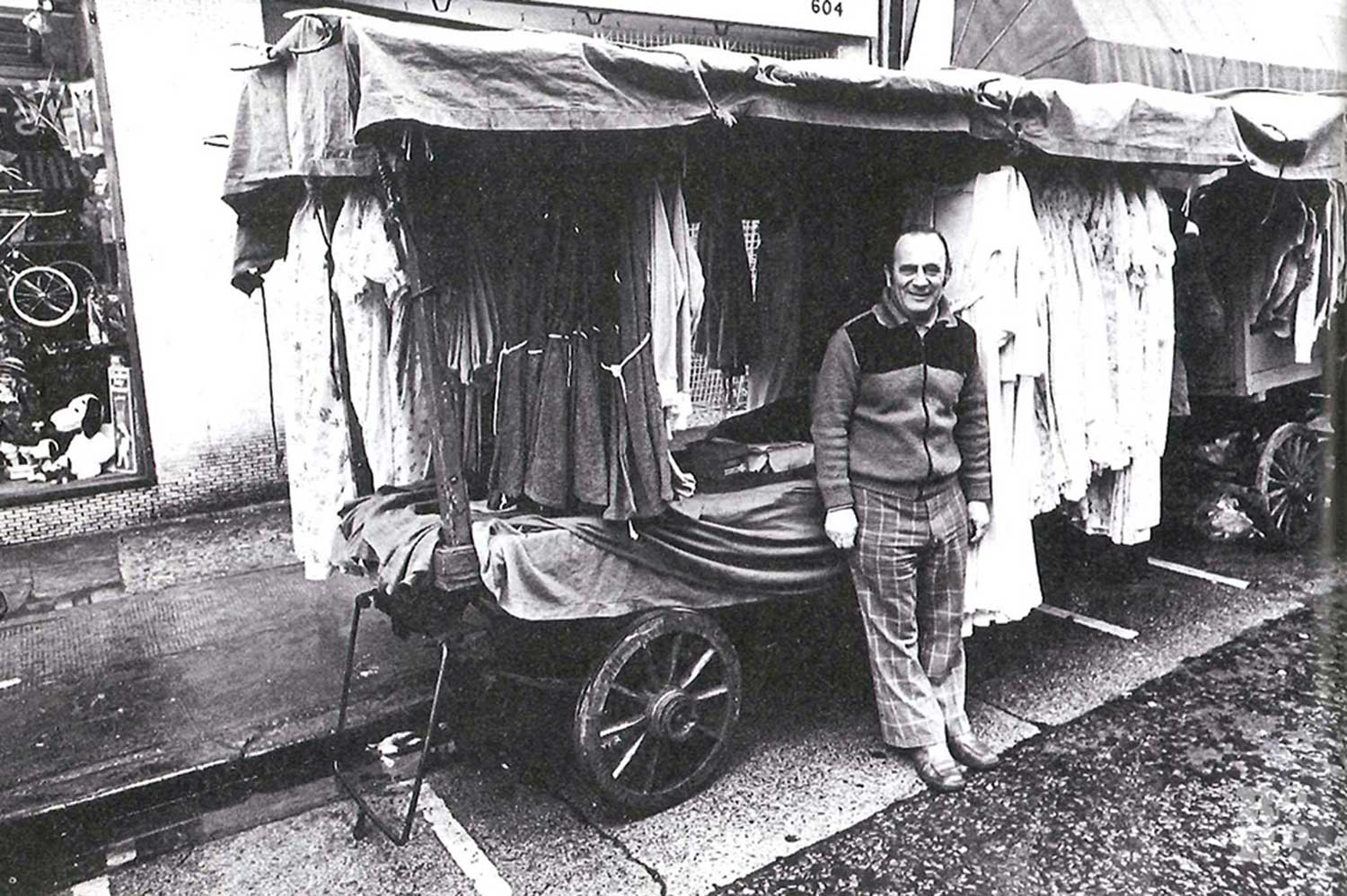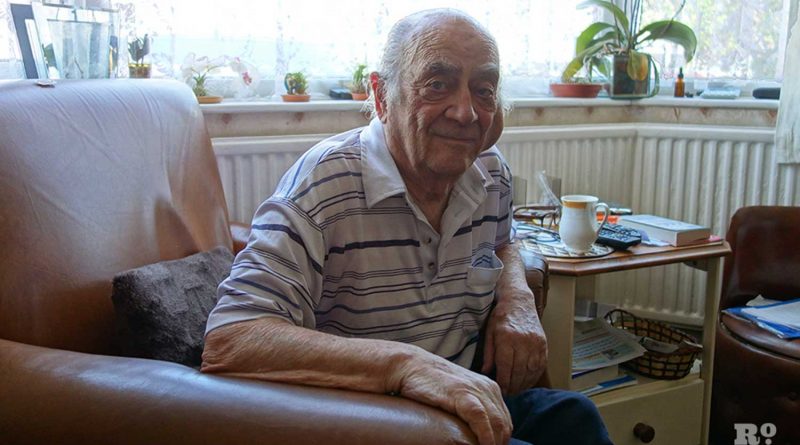Harry da Costa: fighting for street trader rights on Roman Road Market
We meet Harry da Costa, one of Roman Road Market’s most well known characters, who first started trading at the age of seven in the thirties, and succeeded in brokering an insurance deal for all London street traders.
Trading on Roman Road Market
‘I think I was born to be a market trader,’ says 88-year-old Harry da Costa, and he’s got the pedigree to back it up. Almost every branch of his family tree boasts a Roman Road market trader; his parents met on the market, as did Harry and his wife Marie.
He explains: ‘One grandpa used to get a lot of stuff from Selfridges. When the buyers there had stuff left over that they wanted to get rid of, he’d buy it; mainly in the hardware department. The other one was mainly haberdashery. My father sold anything he could get hold of. His sister and my mother sold baby wear and underwear. My mother’s brother sold furs. Another brother sold shoes. My father’s brother’s brother-in-law sold glass. There were quite a few others, I don’t remember what they sold. There must have had about 20 stalls between the family.
‘My first memory of the market is as a seven-year-old. My father used to sit me on the corner of the stall and say ‘serve’, and he’d disappear into the pub. He’d come back about half an hour later: ‘You took any money?’ And he’d carry on. My father was what they called a job buyer. He’d buy and sell anything.’
Harry’s own trading experience is just as eclectic.
‘I think other than menswear, I must have sold anything you can mention over the years. Didn’t we dear?’ he asks his wife. ‘Yes we did,’ Marie replies.
In between various stints as a cook in the Navy, Harry worked on the market selling yams, sweet potatoes and bananas, underwear and jogging suits, hardware, and much more.
‘One particular memory I have involves him as well,’ Harry says, pointing to his brother Joel, who is eight years his junior. ‘Just after the war I bought a job lot of barrage balloons. They were surplus, and we bought a job lot. I can’t remember what they cost me now; a matter of coppers. We put them on the stall but we didn’t know what to do with them. I said (to Joel) get hold of one end and walk across the road and hold it up. On one side of the road he was holding a barrage balloon and I was holding the other end on the other side of the road – where the library is, opposite there, that was all bomb damage, and I was standing on the bomb damage – and I suddenly thought: car cover. We charged 50 pence each, and we sold the lot. I’ve always remembered that, and so has he. We’ve often remarked about it, haven’t we? I don’t know how we thought of the idea, but people bought them, they all went.’
Fighting for the rights of street market traders
However Harry is perhaps best known on the market as the chairman of its Traders’ Association. It’s a post he held for around 25 years, until the early 1990s.
‘I did all sorts of things,’ he says of his time presiding over The Roman Road and those who traded upon her: from raising money for St Andrew’s Hospital, to arranging trips to the seaside for local children, from regular shopping festivals, to dances for the traders, as well as trips to Ascot, jazz bands in the market, and anything else required ‘to keep the market alive’.
‘I think The Roman was probably one of the best markets in London, if not the whole of the country. You couldn’t walk through the market in less than an hour. Not buying anything, just walking through, it’d take you an hour at least from St Stephens Road to Parnell Road. It was shoulder to shoulder.’
‘People used to say it’s a mug’s game (working on the market), but if you knew what you were doing it wasn’t a mug’s game at all. It was a good living,’ he says.
And Harry was instrumental in ensuring that it remained a good living for all traders, by taking local London authorities to court in 1990 over changes to street trading conditions. Harry and his fellow market representatives were successful, and went on to broker an insurance deal for all London street traders over public liability. The Combined Market Traders Insurance company started with 700 London salespeople on its books, before opening services nationwide.
It is almost 20 years since Harry retired from Roman Road, and 10 since he last visited, but, he says: ‘I’m still involved with the markets. I still work for Combined Market Traders Insurance. I may be 88 years old, but I’m still working.’
‘Last week we passed 18,000 traders insured.’
But does he miss the hustle and bustle of his Roman Road market?
‘When I turn over in bed at 8 in the morning, no,’ Harry jokes.
‘We miss the customers,’ Marie says, explaining how they were often recognised as Roman Road market traders while on holiday as far afield as Spain.
‘The Roman is known all over the world,’ Harry says proudly.

If you enjoyed this article, you might also enjoy Gary Arber talking about Roman Road Market in its heyday


Thank you very much for this beautiful article. This is really great & innovative. I loved your article. Your ideas are great. Well done.